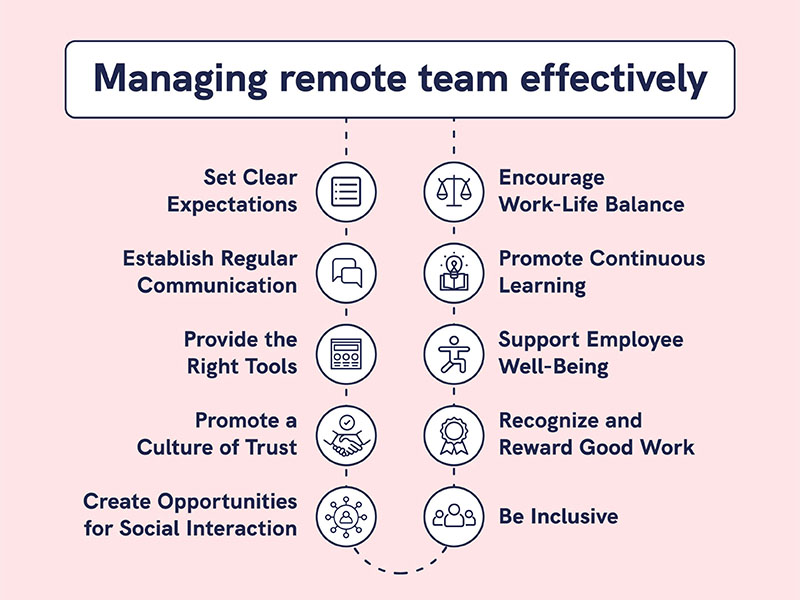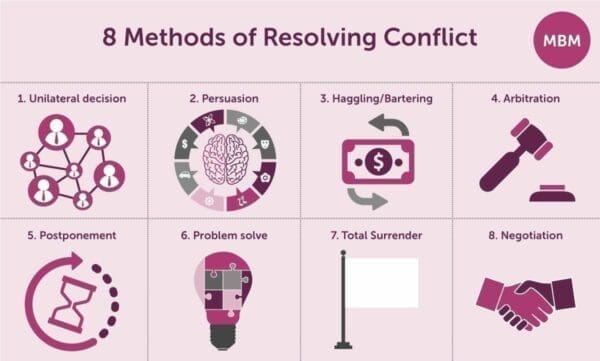
Effective Conflict Resolution A Guide for Workplace Harmony

Navigating Workplace Conflicts: Strategies for Success
In the bustling environment of the modern workplace, conflicts are almost inevitable. Whether it’s differences in opinions, clashes in personalities, or misunderstandings, conflict can arise and disrupt the harmony of the workplace. However, with the right strategies and mindset, conflicts can be managed effectively, leading to a more productive and cohesive work environment.
Understanding the Nature of Workplace Conflicts
First and foremost, it’s essential to understand the nature of workplace conflicts. Conflicts can stem from various sources, including differences in communication styles, competing priorities, power struggles, or unresolved issues. By recognizing the underlying causes of conflicts, employees and managers can address them more effectively.
Open Communication: The Key to Resolution
One of the most critical strategies for resolving workplace conflicts is open communication. Encouraging employees to express their concerns, grievances, and perspectives in a respectful manner can help prevent conflicts from escalating further. Moreover, active listening plays a crucial role in fostering understanding and empathy among team members.
Embracing Constructive Feedback
Constructive feedback is another valuable tool for resolving conflicts in the workplace. Instead of avoiding or dismissing feedback, employees should embrace it as an opportunity for growth and improvement. By providing specific and actionable feedback, managers can help employees address underlying issues and work towards a resolution.
Seeking Mediation and Collaboration
In cases where conflicts persist despite efforts to resolve them internally, seeking mediation or collaboration can be beneficial. Mediators, whether internal or external, can facilitate constructive conversations and help parties find common ground. Collaboration, on the other hand, involves bringing together conflicting parties to work towards a mutually beneficial solution.
Maintaining Professionalism and Respect
Regardless of the intensity of the conflict, maintaining professionalism and respect is paramount. Employees should refrain from engaging in personal attacks, gossip, or other unprofessional behavior that can escalate conflicts further. Instead, focusing on finding solutions and maintaining a positive work environment is key.
Implementing Conflict Resolution Policies and Procedures
To effectively manage conflicts in the workplace, organizations should have clear and transparent conflict resolution policies and procedures in place. These policies should outline the steps employees can take to address conflicts, including who to approach for assistance and how conflicts will be investigated and resolved.
Promoting a Culture of Collaboration and Teamwork
Ultimately, preventing conflicts from arising in the first place is the best approach. Organizations can promote a culture of collaboration and teamwork by fostering open communication, encouraging diversity of thought, and recognizing and celebrating individual contributions. By building strong relationships and a sense of camaraderie among team members, conflicts can be minimized.
Investing in Conflict Resolution Training
Lastly, investing in conflict resolution training for employees and managers can pay dividends in the long run. Training programs can provide individuals with the skills and techniques needed to navigate conflicts effectively, including active listening, negotiation, and problem-solving. By empowering employees with the tools to address conflicts proactively, organizations can create a more harmonious and productive workplace.
In conclusion, conflicts are an inevitable aspect of the workplace, but they don’t have to be detrimental. By understanding the nature of conflicts, promoting open communication and collaboration, and investing in conflict resolution strategies, organizations can effectively manage conflicts and foster a positive and productive work environment. Read more about tips for dealing with conflict in the workplace


